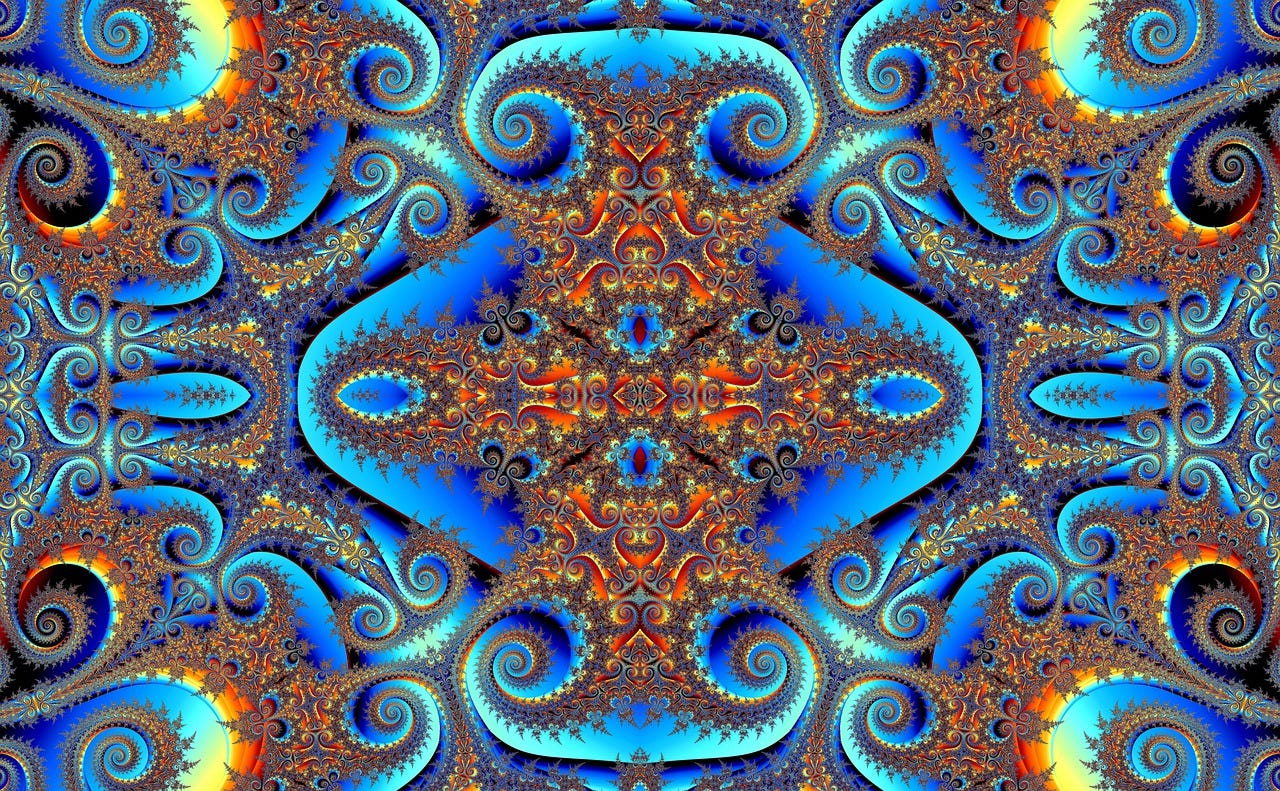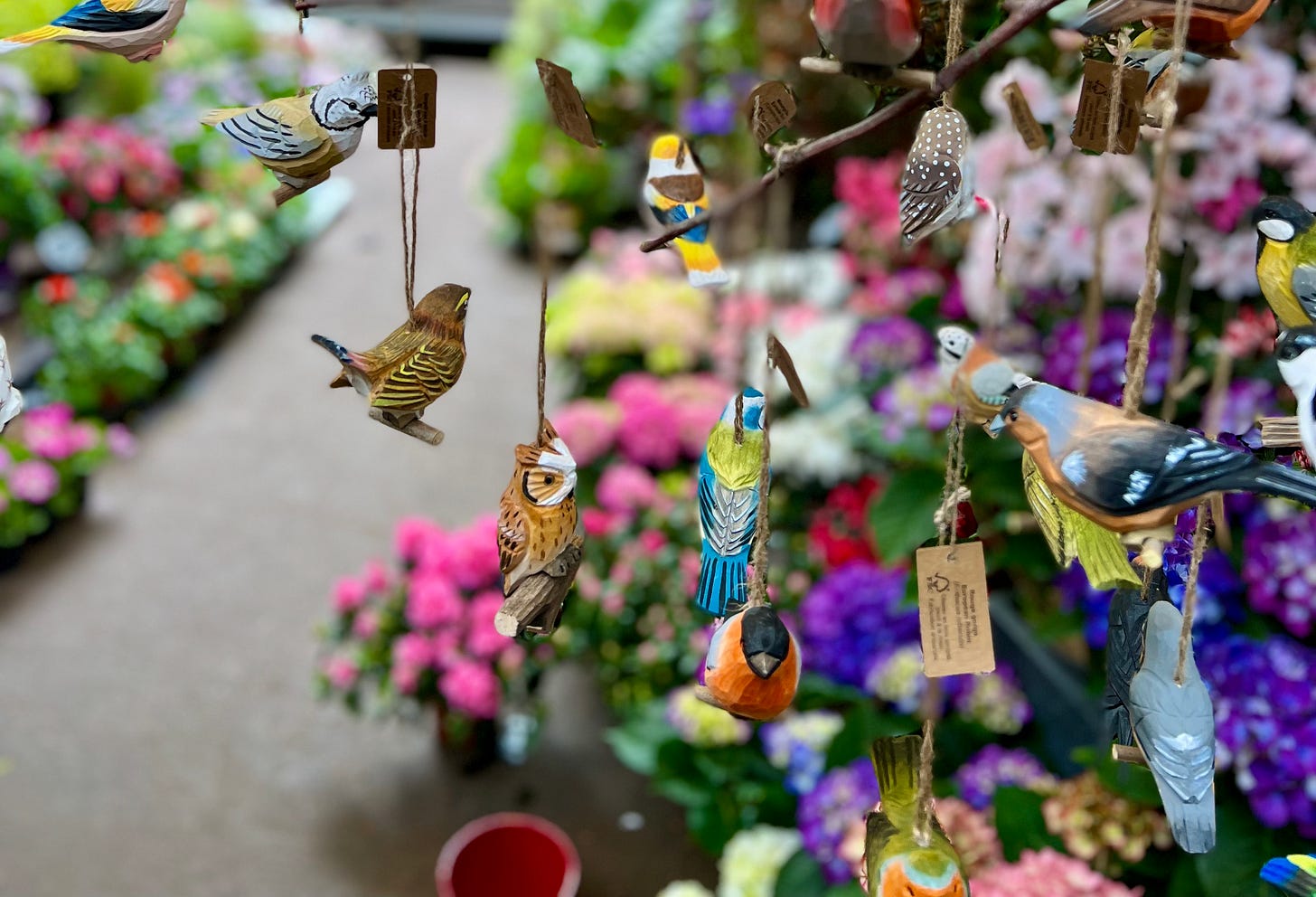TGIF :: ClearLife & Psychedelics
Weekly Drop #27 || Five questions to ask when considering psychedelics as part of a ClearLife practice
I was asked this question multiple times this week:
“What is your take on psychedelics and living clear?”
One of you wrote with more nuance:
“I was noodling on the question of ‘what constitutes a clear vs unclear life’ as this relates to substances? We talked about alcohol, cannabis, and media - but what about psychedelics? I find this topic so fascinating because if a ‘Clear Life’ in a way brings us closer to alignment - do psychedelics bridge a gap (or not at all)? Is it the intentionality behind consumption? Or something else altogether?
It’s a good question: Can we strive towards deeper clarity and intention while intentionally ingesting something that can seriously alter us, making us appear and feel anything but clear?
The short answer is: Absolutely, but with some conditions. Here I share five questions to ask ourselves as part of such an exploration.
Research, Not Mine.
First, as much as I love research, I am not going to try to summarize or rehash the seemingly endless resources on the topic of psychedelics and sobriety including studies on the efficacy of psilocybin in addiction therapy, how some people are opting out of alcohol but still using marijuana (known as “California sober”), and ketamine use among sober people as a tool for deep healing and addiction treatment. Turns out, even the founder of AA thought LSD could cure alcoholism.
Overall, there appears to be general alignment around a key point: Psychedelics can compliment addiction treatment.
But what if we’re not trying to treat addiction? What if we are just trying to live an intentional, dimmer-free life? Are psychedelics compatible with this path?
From a ClearLife Perspective, It’s About Intention.
With utmost respect for the myriad of perspectives out there, the ClearLife one is as follows: The compatibility of psychedelics use with a choice to live clear depends on the intention behind the use.
As previously noted, we can remove dimmers, strive to be more present, and align with our intuition and values, there is seldom a definitive “arrival” or completion. ClearLife is an ongoing practice, always evolving. Some days will be better than others. Our priorities shift. We advance, err, grow, and hopefully keep moving forward.
Psychedelics can compliment our journey towards clarity and alignment—if used with such intentions, not as an escape. The opportunity is to examine our why when we are drawn to these experiences: Are we seeking them out of boredom, curiosity, a desire to disconnect, or evade discomfort? Or do we aim to overcome personal barriers, expand our consciousness, access hidden aspects of ourselves, or decode intricate parts of our behavior? It could be a blend of both motivations.
An Interesting Twist: ClearLife & Self-Control, Perfectionism
In exploring this topic with others, I’ve heard a lot about the interplay between control, alcoholism, perfectionism, and people-pleasing. Alcohol is a commonly used self-medication to “take the edge off” for people who are hyper-vigilant or feel the need to control their environments, schedules, families, or diets. If burdened by an inner unrest, a drink (or four) can be a lovely, albeit temporary salve.
A ClearLife journey may involve exploring these controlling tendencies to understand their roots. What drives our constant need for control? What are we afraid of? What changes if we relax our grip? Understanding these inclinations can be pivotal. For some, embarking on a psychedelic journey, which might feel like relinquishing control, requires enormous bravery. Building trust in ourselves and our support system can be as profound as the journey itself.
A Practice: Five Questions to Ask When Considering Psychedelic Journey Work
When considering psychedelics, there are five questions that can help us determine whether this path is in alignment with our journey:
Why am I drawn to this experience? What are my true intentions? Are they compatible with the path I’m on?
Is there an alternative approach I should consider? Have I explored therapy, meditation, sound journeys, breath work, or other means of deepening self-awareness first?
Is the timing right? Should I wait until certain life conditions have shifted or evolved a bit so I feel more supported and grounded?
Am I prepared? Have I done what I need to do to get clear about what I seek to get out of the experience(s)? Have I found the right people, setting, and support to make the most of it, before, during, and after?
Am I willing to do the work? Experts in this field tell us that the period following a psychedelic journey, what is often referred to as integration, is as, if not more important that the journey itself. Am I open to spending time afterwards integrating the experience, taking and applying the learnings?
If you have other questions you’d ask, please share. There will be a follow-up to this post someday.
Personal Experiences with Psychedelics
Since opting out of alcohol years ago, I’ve tried to be vigilant about explorations with anything that could take it’s place as a dimmer, an escape hatch, a way to evade unpleasant feelings—including coffee, sugar, work, shopping, perfectionism, people-pleasing—and various drugs. It’s a daily practice, primarily centered around evolving self-awareness around various choices.
Though it feels like lifetimes ago, I experimented with psilocybin, MDMA, and LSD in my teens and twenties. I consider myself lucky because in that all in all, my experiences were exploratory, safe, generally positive, and in some cases, consciousness-expanding. I even discovered a previously unknown family member on psilocybin, but that’s a (great) story for another day.
Growing up in Marin County in the 1970s and 1980s, we were surrounded by eclectic parents, several of whom either supplied the goods or coached us on how to best use them. We chose each others’ homes and the stillness of neighboring woods over night clubs (most of the time). Looking back, were fairly intentional about it all. As teens we huddled in a circle for little rituals at the outset. We looked after each other. We had periods of integration, to the best of our abilities at the time.
While I have yet to embark on any profound medicine journeys as part of my own ClearLife practice, my past experiences have imbued me with a certain reverence for this work. I respect these offerings and those dedicating their lives to assisting others with them, using methods more evolved and informed than what I experimented with in the nearby woods years ago. And I’ve loved seeing people in my life heal and grow with the support of various psychedelic means.
Like most things these days, I’m allowing myself the space to understand the subtlety of underlying motivations, seeking to feel what arises when considering various options, and giving myself a lot of grace in the process. It’s a journey, after all.
Your reflections and ideas are welcome, as ever.
❤️
Miscellaneous…
Fierce Substacks to Explore… For courageous and intimate written works on psychedelics as a component of healing and recovery, I invite you to visit Using Psychedelics in Recovery (this link is to part 2 with a link to part 1) in Recovering by Holly Whitaker and Sobriety on Shrooms in Sober Soulful by Dana Leigh Lyons. Deep bow to you, ladies. 💌
The Way Forward… Less than two weeks until I get to interview Yung Pueblo on his latest (and perhaps most profound) work, The Way Forward in San Francisco. Tickets are almost sold out, so if you plan to join, don’t dally :) 💥
Sangha Saturdays Have Launched! Our second zoom session will take place on October 14th and our second in-person session will likely take place on October 28th. Please indicate your interest for an invitation here. Thank you to all of you who’ve joined to date. I learn so much from you. 🙏🏼







I deeply appreciate your perspective, Cecily.
For several years my wife and I provided integration support for people who were either going through psychedelic-assisted therapy or pursuing it on their own through the "underground". Some were seeking help for addiction, most were healing some form of trauma (we worked with a lot of special forces operators), and many were simply exploring consciousness.
In every case, those who worked with clear intentions discovered the most healing and freedom. They also "did the work" of grounding and embodying their experiences into everyday life. Intention and integrative work are everything. Thank you for sharing your thoughts on this. This kind of perspective is needed right now.
Thanks so much for the mention, Cecily. And such great guiding questions! This is such an important topic these days, and there are so many considerations.
Psilocybin has absolutely supported my sobriety from alcohol and helped weaken my ongoing addictions to external approval, overwork, obsessive-compulsive patterning, etc. But I find using it gives me plenty of "material" to work with for a long while before feeling called to use it again. I also don't consider it the "main thing" in my recovery. For that, I turn to yoga, meditation, and spiritual practice.
Really grateful for spaces like this one, where folks can have open, honest, nuanced conversations without assuming that everyone's sobriety and recovery needs to look a certain way or the same. Thank you for the work you do!